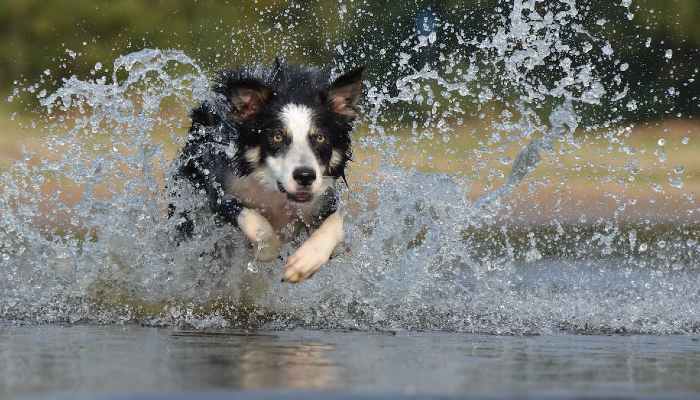Herding dogs are some of the most versatile and intelligent breeds in the canine kingdom. From herding livestock on farms to competing in agility trials, these dogs are bred for work and play. As a pet owner, it’s important to understand the unique characteristics and needs of herding dogs in order to provide them with the best possible care. In this article, we’ll delve into the history, traits, and popular breeds of herding dogs, from Border Collies to Australian Shepherds. So buckle up, grab a cup of coffee, and get ready to learn all about these fascinating four-legged friends.
History of Herding Dogs
Herding dogs have a rich and fascinating history that dates back centuries. These hardworking and highly intelligent dogs have been an integral part of human life for generations, serving as both protectors and workers on farms, ranches, and homesteads around the world. The history of herding dogs can be traced back to their origins as livestock guardians and herders, where they were responsible for keeping flocks safe from predators and guiding them to pasture. With the advent of modern agriculture, herding dogs evolved to become some of the most skilled and versatile breeds in the world. From the rough terrain of Scotland, where the Border Collie was first developed, to the sprawling ranches of the American West, where the Australian Shepherd earned its stripes, herding dogs have adapted and thrived in a variety of environments. This rich history of herding dogs has resulted in a wide range of physical, behavioural, and temperamental differences among the various breeds, making it important to understand their history in order to appreciate their unique qualities and provide them with the best possible care.
Characteristics of Herding Dogs
These amazing dogs are characterized by a unique set of physical, behavioural, and temperamental traits that set them apart from other dog breeds. Physically, herding dogs are generally athletic and agile, with strong bodies and sharp minds that make them ideal for work and play. Behaviourally, herding dogs are often highly energetic and driven, with a strong herding instinct that can sometimes manifest as herding behaviour towards people or other animals. This drive and energy make them ideal for activities such as agility, obedience, and herding trials, but it also means that they need plenty of physical and mental stimulation to stay happy and healthy. Temperamentally, herding dogs are often affectionate and loyal, with a strong bond to their owners and a strong desire to please. These traits, along with their trainability and eagerness to learn, make herding dogs popular choices for pet owners and trainers alike. Understanding the unique traits of herding dogs is key to providing them with the best possible care and helping them lead happy, healthy, and fulfilling lives.
Popular Herding Dog Breeds
Herding dogs come in a wide range of shapes, sizes, and personalities, making it easy to find the perfect breed for you. Whether you’re looking for a high-energy agility competitor or a loyal and loving companion, there is a herding dog that is perfect for your needs. In this section, we’ll take a closer look at some of the most popular herding breeds, from the classic Border Collie to the playful and energetic Australian Shepherd.
The Border Collie is widely recognized as one of the most intelligent and hardworking dog breeds in the world. With its intense focus and drive, the Border Collie is the quintessential herding dog, and is often used in herding trials and competitions. This breed is highly trainable and eager to please, making it an ideal choice for pet owners who want a highly intelligent and obedient pet.
The Australian Shepherd, with its playful and energetic personality, is another popular herding breed. This breed is well-suited to families with active lifestyles, and is often used in agility, obedience, and herding trials. The Australian Shepherd is known for its loyalty and affection, making it a great choice for pet owners who want a close and loving companion.
Other popular herding breeds include the German Shepherd, the Belgian Malinois, and the Welsh Corgi. The German Shepherd is widely recognized for its loyalty and protection instincts, making it an ideal choice for pet owners who want a watchful and protective companion. The Belgian Malinois is prized for its intelligence and trainability, and is often used in police and military work. The Welsh Corgi, with its playful and affectionate personality, is a popular choice for families with children.
Caring for Herding Dogs
Herding dogs are a unique group of breeds that require specific care and training to thrive. These dogs are highly active and energetic, and need plenty of physical and mental stimulation to stay happy and healthy. This can include regular exercise, training sessions, and socialization opportunities. Herding dogs are also highly intelligent and driven, and may require more intensive training and discipline than other breeds. It is important to understand the specific needs of your herding breed and to provide them with the care and attention they need to thrive.
In terms of physical care, herding dogs typically need plenty of exercise and activity to stay healthy. This can include daily walks, runs, and playtime, as well as more intensive activities such as agility and herding trials. It is also important to provide herding dogs with a balanced and nutritious diet to support their active lifestyles.
Herding dogs also require mental stimulation, and may benefit from training and discipline sessions. These breeds are highly trainable, and can excel in activities such as obedience and herding trials. However, it is important to approach training and discipline with a positive and consistent approach, and to avoid harsh or aggressive training methods.
Socialization is also an important part of caring for them. These breeds are often highly social and enjoy spending time with people and other dogs. Regular socialization opportunities can help to prevent behaviour problems and ensure that your herding dog grows up to be well-behaved and confident.
Herding dogs are often highly active and energetic, making them ideal for pet owners who lead active lifestyles. However, it is important to consider the specific needs of each herding breed before bringing one into your home. Some herding breeds, such as the Border Collie, are highly intelligent and driven, and may require more intensive training and discipline than other breeds. Other herding breeds, such as the Welsh Corgi, are more laid-back and adaptable, making them better suited to families with young children. Before bringing a herding dog into your home, it is important to research each breed and consider your own lifestyle and needs to ensure that you are making the right choice for you and your new pet.




